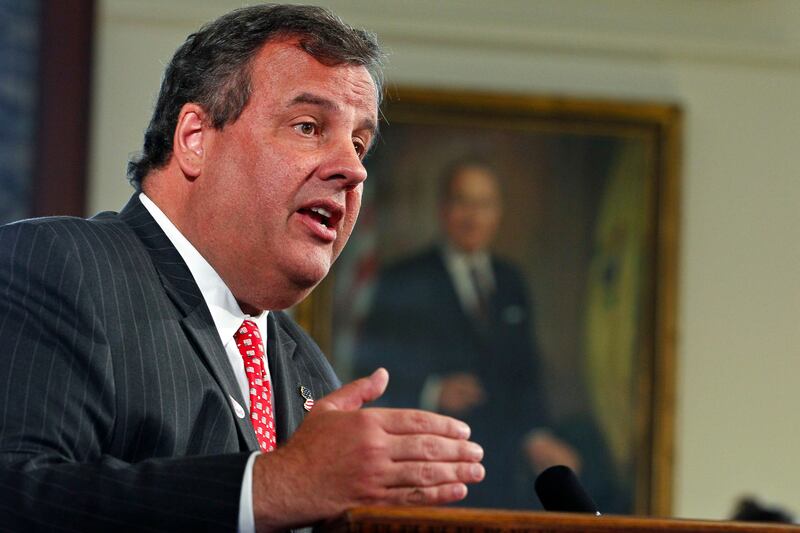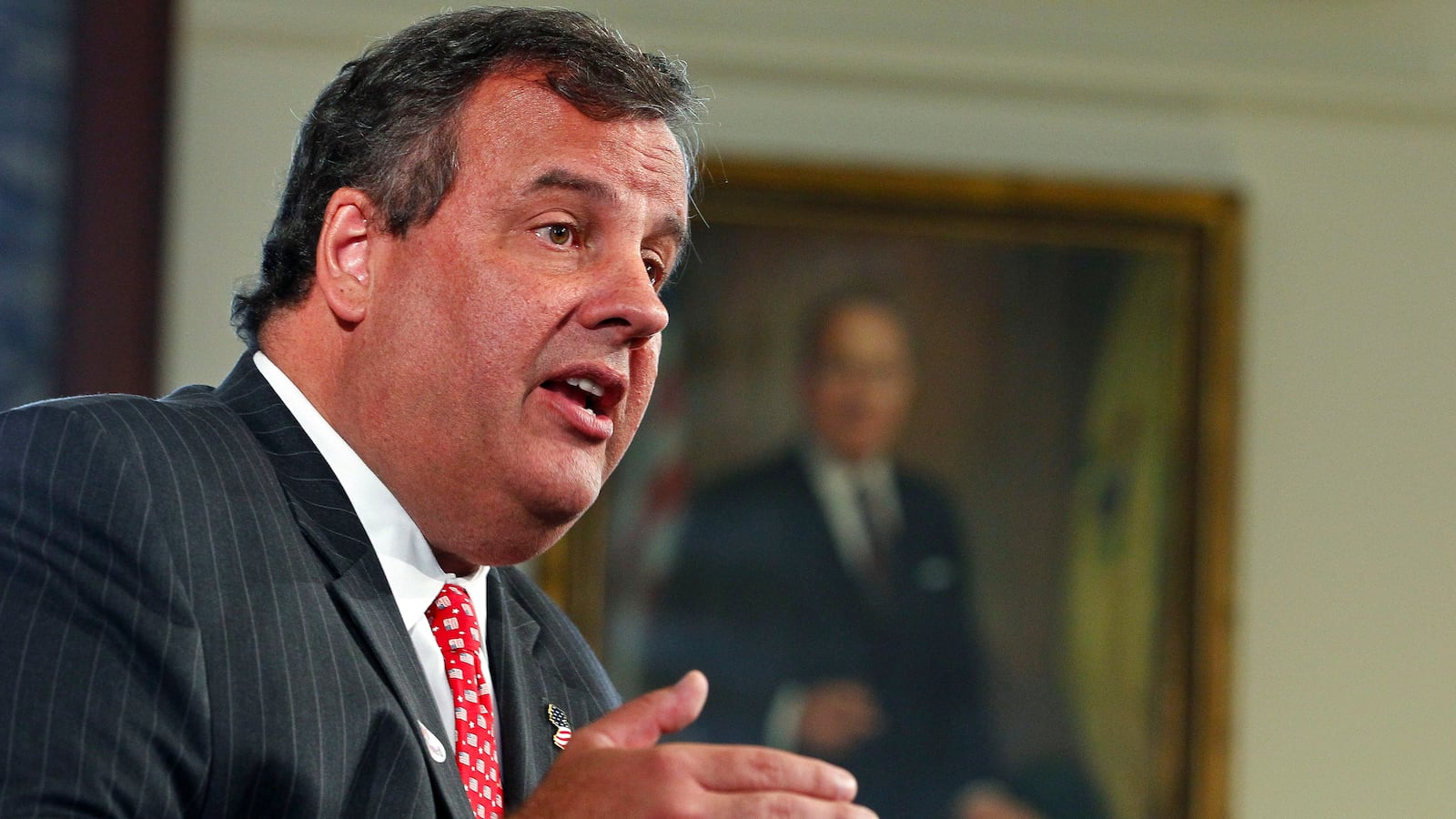By now, everyone knows how to do the Republican presidential hokey pokey: You put your right foot in. You take your right foot out. You put your right foot in and you shake it all about—preferably while railing against immigration reform, Obamacare, gun control, abortion, Big Government, or whatever stew of left-wing evils happens to be roiling Sean Hannity’s Facebook page that day.

Later, after assuring the base that you share its no-compromise, anti-Obama rage, you can start working to woo back the electoral center: maybe you don’t put your left foot all the way in, but you at least stop shaking the right half of your body quite so violently.
Gov. Chris Christie knows the dance. He’s watched the dance. He’s sneered at the dance. And now, as he lays the groundwork for 2016, America’s “hottest” political leader is ever so delicately attempting to choreograph his own variation.
Over the past week or so, as much of the political class luxuriated in the relative serenity of Congress’s summer recess, Christie executed a trio of policy moves on ticklish social issues that raised eyebrows across the political spectrum.
First came firearms: Friday night, the governor vetoed a variety of gun-control bills, including a ban on .50 caliber long-range rifles that he himself had proposed in the wake of last year’s Sandy Hook massacre. Gun-rights advocates expressed their delight at Christie’s about-face on the issue. Republican operatives, meanwhile, stressed the move’s political savvy. As a veteran of the presidential campaign trail reminded me, “The Second Amendment issue is one you simply cannot be on the wrong side of with base voters in early primary states.”
Lest anyone think Christie is throwing all in with the wingers, however, on Friday the governor also advocated easing access to medical marijuana for ailing children. Three days later, he ventured onto even trickier political terrain by signing a bill to outlaw so-called gay-conversion therapy for anyone under the age of 18. Whatever your position on gay rights or the toxic quackery of such treatment—which aims to turn gay folks straight and which the American Psychological Association has warned poses “critical health risks”—it takes serious stones for a Republican to support any bill that impinges upon parental rights. Veteran GOP spin doctor Mark Corallo proclaimed himself “puzzled” by Christie’s moves and mused, via email, “Not sure why he’d want to start a fight with some of the more highly motivated primary voters.”
Indeed, the overall issue of gay rights promises to be a complicated dance step for Christie. Despite the fact that between 50 and 60 percent of New Jersey residents say they support gay marriage depending on how you ask the question, the state is a rare holdout among New England and mid-Atlantic states on marriage equality—and Christie has done his part to keep it that way. Last year, he vetoed a gay-marriage bill, citing his Catholic faith, and shortly thereafter he informed CNN’s Piers Morgan that he would never change his mind on the subject: “I would not compromise my principles for politics. You’re saying, ‘Will it become politically unpopular to have the position I’m having?’ If it does, so be it. I don’t compromise my principles for politics.” This June, Christie slammed the Supreme Court’s decision striking down DOMA, and earlier this month, his administration filed a court brief defending New Jersey’s 2006 civil unions law, which was passed specifically to keep same-sex marriage out of the state. (Slate’s Nathaniel Frank was decidedly underwhelmed by the brief’s legal reasoning.)
That said, the governor wants to make clear that he is no Michele Bachmann. He has said he believes that people are born gay and that homosexuality is not a sin. During the same CNN sit-down in which he dismissed the possibility of personal evolution on the issue, he said he would nonetheless respect voter wishes if they embraced marriage equality through a ballot initiative. Then came this week’s gay-conversion ban—a move that renewed gay-marriage advocates’ hope that Christie will, if not himself reconsider, at least lighten up enough on the matter that a sufficient number of statehouse Republicans can be impelled to join Democrats in overriding the governor’s 2012 veto before the January deadline.
As if the issue weren’t fraught enough, Christie’s Democratic opponent in this year’s gubernatorial race, state Sen. Barbara Buono, has a lesbian daughter who has not been shy about voicing her frustration with the governor. So even as Christie is expected to cruise to reelection, he needs to avoid energizing voters—on either side of the issue—in a way that could come back to bite him once he starts his White House stumping in earnest.
Then again, what social issue isn’t likely to prove sticky for a blue-state Republican presidential wannabe who needs to keep his non-fringey rep, but also needs to win over a deeply suspicious base? Especially when, of all people, Christie can’t afford to look like he’s playing politics. “His appeal up until this point has been the ‘Christie says what he believes’ angle,” observes the GOP campaign operative. “If he begins to look like he’s changing his stripes just to position himself for a presidential run, he risks losing his central appeal.”
And so the governor’s great challenge is to navigate these issues with sufficient grace and subtlety that his fancy footwork goes unnoticed. Turning himself around, without appearing to. That’s what it’s all about. That’s what it’s always about.






